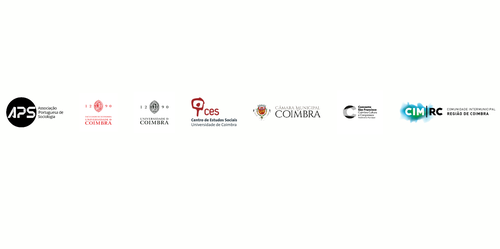Call for papers | Sociology of Religion
Coordinators:
Helena Vilaça (FLUP e IS-UP)
António Joaquim Costa (UM e CECS)
José Pereira Coutinho (UCP e CITER)
Social polarization means the development of extremist positions, hostile to each other, along with the retraction of moderate positions, resulting from economic, social, ethnic inequalities and different worldviews. The aforementioned social polarization has been studied, in particular, in developed economies, but essentially focused on economic, political and racial issues, relegating, to the background, dimensions of an ethnic and religious nature, which, as a rule, are hidden or analyzed according to common sense parameters, even in academic contexts.
Radicalized modernity generates defensive attitudes towards what Habermas in the Theory of Communicative Action calls the “colonization of the lifeworld.” These reactions are not exclusive to neoconservative sectors that, dominated by a certain social romanticism, seek a new model of rationalization: the protagonists of (new) religious movements or, more generally, of new social movements such as anti-economic growth, anti-globalization and self-centeredness share the same vision or "anti-modernist passion". often manifest themselves in society, translate into the affirmation of subjectivity, reconciled with the strengthening of the market principle, and the retraction of citizenship. Digital media works as one of the most aggressive instruments of social polarization and this occurs in its most diverse platforms.
Habermas also underlines the particularity of the struggles of ethnic, cultural or religious minorities for their recognition. This is a matter of a different nature from other claims movements. When what is at stake are cultural identities – and religious identities are cultural identities – the challenges are different. The movements that lead these struggles also aim to “overcome the illegitimate division of society”, which means that the self-understanding of the majority culture cannot remain untouched. In this case, for the members of the secular culture, today the majority, reviewing the interpretation of the action and interests of others (minorities) does not necessarily change the role of who is dominant.
In this new millennium, we see the coexistence of individuals who are openly unbelievers alongside others with an intense religiosity; or individuals with an assumed religious identity and in extreme fidelity to the orthodoxy of belief and the ritual of practice, along with others who affirm the same identity, but with a religious experience guided by doctrinal heterodoxy and institutional distance; or even followers of different currents based on the secular self or the New Age, whose common trait is a deep syncretism and, in the opposite direction, the subjects who adhere to the orthodoxies of Christianity – in its Catholic, Protestant or orthodox aspects – of Judaism, Islam, of Eastern religions. The explanation of the religious field in modernity will necessarily have to play with concepts such as pluralism and individualization. This means that democratic societies, which constitutionally safeguard the equality of the various religious options, can hide modalities of symbolic power held by groups with more resources. For this reason, it seems to us more correct to conceive pluralism as a type-ideal according to the parameters of Berger & Luckmann's communicative interaction and Habermas' communicative ethics, both of which advocate much broader spaces for social participation.
In this sense, we urge you to send proposals for communications that address topics such as:
- The instrumentalization of religion by individual or collective actors to promote specific interests in the context of the dynamics of social and political power;
- Secularist political and legal strategies in the regulation of religion;
- Defense of religiously motivated values in areas related to private morals (sexuality, ethics of life) and limitations on religious freedom;
- Variations in political and religious attitudes and positions in terms of generations, emphasizing here the youth who are religiously committed or not;
- Internal plurality within religious groups: liberalizing attitudes and attitudes defending fidelity to traditional normativity, a tension that cuts across Catholics, historical and evangelical Protestants, Muslims, Hindus, Buddhists and others.
In this way, we invite all sociologists, researchers and correlated professionals to send abstract proposals for investigations located in an academic and non-academic context in response to our Call.
In addition to papers, posters and visual documents such as short films or short films centered on projects or interventions will be accepted. These proposals, despite the differences between academic and non-academic contexts, must be formulated according to the norms of theoretical-methodological scientific requirements.
The rules and deadlines to consider for the submission of abstracts, as well as more information about the XII Portuguese Congress of Sociology, can be consulted on the APS website at http://www.aps.pt.
The Thematic Section's coordination will select the best communications to be proposed for publication in the journal SOCIOLOGIA ON LINE
PDF Version
